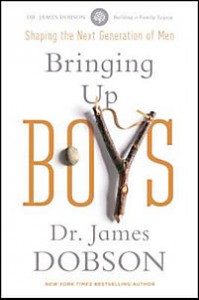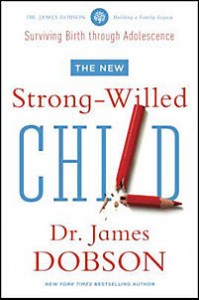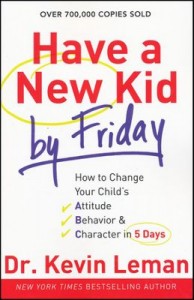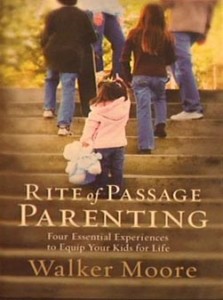
by Brian Hobbs | Apr 29, 2015
My wife and I have five young children, ages 11 through baby. So between my job, church responsibilities and work, life seems fast-paced, from morning to night. Because of this, I have had to be more intentional about life, making sure the real priorities get proper attention. Here are several lessons I learned.
1. Put God first. Others second. Yourself last.
A few years ago, a powerful video testimony movement called “I Am Second” came about, when celebrities and athletes who profess to be Christians say that put God first and themselves second. In God’s economy, however, it would be better to put God first, others second and ourselves last. Do your career goals push others behind you, or put others first? Examine your habits and see if you are obeying the Great Commandment and the Second Commandment (Matthew 22:36-40).
2. Don’t take on too much/over-commit.
We have all been there. Our church asks for help, and we say “yes.” A friend asks for help, and we say “yes.” Work is always wanting more from our time. Before we know it, there is less and less free time for your family. Take time today to examine your schedule. Are there any commitments that might be good, in themselves, but are taking away from what is best? Use wisdom to say “yes” and “no” in a God-honoring way.
3. Take back Sundays.
I wrote this piece more than a year ago on this topic. What do your Sundays look like? Are they for ballgames or church, shopping or family time? Biblical commentators point out that Christians are no longer under the law, and we are not required to keep the Sabbath. At the same time, the Sabbath was given as a gift to man (Gen. 2:2-3) for rest; it has, from the very early Church, been the dedicated day for worship, and it offers a great opportunity for family time. Consider the power of taking back Sundays for your family and experience the joy of worship and rest.
4. Keep the table sacred.
Compared to nations like France, very few families eat the main meal of the day together. This is a mistake. We see in the New Testament, time and time again, Jesus sharing fellowship over a meal. Whether it was breaking bread with his disciples or visiting someone’s home, Christ teaches us that table time is sacred. In our fast-food lives, making the dinner time (or a meal time, even breakfast) could make all the difference in your family.
5. Unplug/Limit technology time.
According to statistics, people check their smart phones 150 times a day. That statistic is old and is likely much higher. Smartphones are growing more and more intrusive to family life. I don’t have to explain this, as you have seen it. One solution is to let your boss know you will not be able to check email as frequently during evening hours. Another is to set your phone down. Blogger Carlos Whittaker even has a “family bag” for their cell phones for the entire evening, so they are not distracted from each other. Depending on your family and your job, set some limits on screen time and see how God works.
Each of these lessons I learned the hard way and am still a work in progress. By God’s grace, I hope to live a more balanced life and bring Christ glory by keeping my priorities straight.

by Brian Hobbs | Apr 22, 2015
I looked at my night stand the other day and noticed that I have an excessive amount of parenting books. From the time our oldest was born (11-plus years ago) to today, somewhere along the line, I became a self-confessed Christian parenting book junkie.
Some have been well worth the time while others were not worth the paper they were printed on. Yet here are five books, or authors, I can recommend:
5) Hopeful Parenting by David Jeremiah
Have you ever read a book whose title was as important as the content? For me, this was the case with Dr. Jeremiah’s Hopeful Parenting. There are many books like this that speak to facing the tough issues of life with hope. Parenting in today’s society is as challenging as ever, and if we are to be even remotely successful, it will take the grace of God. By reading this book, you will walk away with some fresh vision for the task at hand and a few pointers to boot.
 4) Bringing Up Boys & Bringing Up Girls by James Dobson
4) Bringing Up Boys & Bringing Up Girls by James Dobson
Dr. Dobson wrote these books years apart, and he wrote them in priority order. If we, as the Church, do a good job raising boys, it will make raising girls marginally easier. As the father to a boy and four girls, I lean on each of these resources. About boys, a takeaway for me is to make life challenging and not easy for boys and embrace his active, adventurous spirit. About girls, the takeaway for me is to be present in their lives. Dobson recorded a group interview with young ladies who are reflecting on their fathers. The only girl who did not have complaints about her Daddy was in a large family (nine children). Dobson wondered how she had no complaints and the young lady said her Daddy always took her out one-on-one every so often. While she knew he was a busy man, that one act communicated love to her. Each of these works is tailored to the unique challenge of raising boys and girls, who are as different as can be.
3) Raising a Strong-Willed Child by James Dobson
This is the book I am currently reading, not the newer version but the original. I once heard a theory that there are two kinds of children generally: those who are more pliable and those who are more strong-willed. Everyone born is born into sin and needs redeemed by God through the saving power of Jesus Christ, and every nature, whether strong or pliable, needs redeemed. Nevertheless, Dobson’s book deals with the hard cases, not just toddlers or surly teens, but everything in between. The takeaway for me is to distinguish between willful defiance, which must be dealt with, and childish irresponsibility. Raising a strong-willed child takes patience and the grace of God. This book might be helpful to you.
 2) Have A New Kid by Friday & Making Your Children Mind without Losing Yours by Kevin Lehman
2) Have A New Kid by Friday & Making Your Children Mind without Losing Yours by Kevin Lehman
I admit that I personally did not favor Kevin Lehman at first, or at least his approach. His sense of humor takes some getting used to for a straight-laced person like me. But there is no doubt he is witty and also wise. More than any Christian parenting book I have read, his offers a tactical approach. Many books are heavy on themes that are hard to implement, but Dr. Lehman’s is practical. One takeaway I have used with my children is not to engage in whining. If they ask for something they shouldn’t have, say no and explain, turn around and walk away. Don’t stand there and fight about it. This tactic has worked time and again for me. Expect tactics like this in Dr. Lehman’s “reality-based parenting” approach.
1) Rite of Passage Parenting by Walker Moore
I am biased because Walker Moore is a friend and also writes for the publication where I work, the Baptist Messenger (see his columns here). That being said, Walker Moore’s book is truly transformational. He talks about how to bring the child from birth through adolescence. He challenges our presuppositions about so-called teenage life and helps parents turn their teens into young adults. The book is humorous and engaging and has a companion workbook too, perfect for any Bible study or Sunday School. Walker’s technique of “grace deposits” has been especially helpful to us. This is the idea that, as parents, we are bound to be correcting, admonishing and (on our weak days) shouting, to get our children to obey. Therefore, we need to take opportunities every day to build them up. A child must learn to be commended, not just corrected. Walker also helps parents think of ways to teach responsibility in an age-appropriate way, so the child takes on more. In the end, if more Christian parents took this work serious, we would have fewer young adults today who are really just overgrown children, or perpetual adolescents, and more godly young people.
Ultimately, I endorse reading the Bible as the true source of wisdom for parenting (especially Proverbs). That being said, each of these authors draws from the Scriptures for wisdom in these non-fiction works, which have helped my wife and me, and which I hope help you.
I end by asking you: what Christian parenting books have helped your family?

by Brian Hobbs | Apr 7, 2015
Rolling Stone magazine is in hot water for publishing a story that proved to be false. According to the editor of the publication, a story titled “A Rape on Campus” was published that centered an alleged gang rape at a University of Virginia fraternity house.
The Washington Post uncovered details suggesting the assault could not have taken place, as Rolling Stone described, and “the truth of the story became a subject of national controversy.”
“We are officially retracting ‘A Rape on Campus’,” the Stone’s editor said in response to the controversy. “We are also committing ourselves to a series of recommendations about journalistic practices that are spelled out in the report.” The editor apologized to readers and “to all those who were damaged by our story and the ensuing fallout.”
I personally work in the world of publications, so it is easy for me to identify with the pain that comes from publishing something that would turn out to be false; even worse, publishing something that tarnishes another’s reputation.
Now the publication where I work focuses on Gospel-centered, Christ-honoring stories that inspire, rather than expose journalism. That being said, there is more going on here in the Rolling Stone case than just expose journalism gone awry. So, as a fellow journalist and Christian, I wish to offer these three thoughts:
- Where’s the honor?
Many in the public were not satisfied with the retraction and apology from Rolling Stone. Many wish the publication went farther in restoring the reputations of those who were accused of rape and holding accountable the reporters and editors.
Dr. Russell Moore, president of the Ethics & Religious Liberty Commission of the Southern Baptist Convention, had these pointed words. “Rolling Stone magazine printed serious criminal accusations against a campus group, accusations the periodical now admits are completely false. Despite all of this, both the article’s author and the magazine editor will keep their jobs according to the publisher. This matters, and matters to far more people than just those on the campus of the University of Virginia or even to the target demographic of Rolling Stone. Behind this scandal is a larger point. In our society, it’s become acceptable to lie about people and ideas, as long as the crisis created is in line with a perceived social good.”
If our society is ever to re-capture honor, it must start with upholding truth as paramount. A society, like a family or a church, who glosses over lying will be faithless, rootless and hopeless.
- Not just unfortunate, but wrong.
Politicians these days are fond of saying, “I misspoke,” when in fact they were just dead wrong. People have the habit of saying about a bad situation, “That is unfortunate,” when it fact it is wrong.
This Rolling Stone debacle is a reminder that some actions go beyond being incorrect. They are false and flat-out wrong. It is not just the world of journalism that needs to consider the weight of words. In a day and age in which a lie can travel halfway around the world before truth has a chance to wake up in the morning, to paraphrase Winston Churchill, we must call things like they are and stop using euphemisms that excuse inexcusable actions.
- Don’t rush to judgment.
These days, the moment an accusation is levied, that person is vilified and excoriated. With the rise of social media, people are casting judgments even before all of the facts are heard.
The court of public opinion, just like the court of law, would do well to hear all of the facts before pronouncing judgment. In that way, we will be more Christian. The Bible emphasizes there be at least two or three witnesses to a crime before a judgement can be made. There is wisdom and prudence in that practice, which is all but gone today.
Whether a false story published in a magazine, or an issue that is raging on social media, we each would do well not to rush to judgment. And so done, we will avoid being a hurled stone, rolling over people who may not have done anything wrong in the first place.

by Brian Hobbs | Apr 1, 2015
Mention movie titles like “Fireproof” and “Courageous,” and Christians will recognize these as films that are powerful, moving and well done.
From the award-winning Kendrick Brothers, creators of these movies, comes a new film called “War Room,” which debuts in theatres August 28.
Actor, producer, filmmaker and Christian leader Alex Kendrick, will be coming to Oklahoma to the 2015 Rewired Men’s Retreat to speak to the men of this state. Also at the retreat, War Room will be shown in its entire length (Note: the movie also will be shown at the Ladies Retreat earlier that month).
The Kendrick Brothers have a unique ability, which they would attribute to God, to tap into an urgent issue or need in the church through their movies.
Just as “Fireproof” focused on marriage and “Courageous” focused on fatherhood, “War Room” also has a theme: prayer. According to sources, “The plot focuses on a couple, portrayed by Shirer and Stallings, who have all the trappings of perfect lives, but whose marriage is falling apart. They salvage their lives by learning to earnestly and fervently pray.”
The PG-rated, family-friendly film features some recognizable faces including Alex Kendrick and Priscilla Shirer.
As I have said for a long time, movies like these are powerful because they speak to the heart. While critics may dismiss or ignore this movie, the impact cannot be explained away. Understanding the power of movies today, the Kendrick Brothers appear to have created another hit in the making.
Let’s pray this movie is as successful or even more than its predecessors. And more still, let’s pray that a powerful prayer movement would begin in the church house in America, realizing our only hope is not in a politician or business leader, but in God Himself.
Information and a movie trailer can be found at this website, warroomthemovie.com.

by Brian Hobbs | Mar 30, 2015
One of the most popular social media hash tags last weekend was #BoycottIndiana. Fueled by major backlash from the Hoosier State’s “Religious Freedom Restoration Act,” the immediate concern was that the law would allow business owners and others to refuse service to homosexuals.
Gov. Mike Pence, a Republican, defended the law on national television, and its authors have assured the public that the bill has nothing to do with discrimination and everything to do with religious liberty.
There is no shortage of confusion about what the bill actually does and says. Here is the actual text of the law causing such a stir.
Ethics & Religious Liberty Commission President Russell Moore shed light on the subject, saying this: “The public debate over Indiana’s new religious freedom law is (almost) enough to drive this Baptist to drink. The conversation has been the most uninformed and ignorant I’ve seen in years. This culminated in a panel on one of the Sunday talk shows suggesting that the law would return us to the days when signs would hang in stores detailing who would not be welcome to do business there.
“The law, of course, does nothing of the sort. Indiana merely passed a state version of the Religious Freedom Restoration Act (RFRA), the law that passed with an overwhelming bipartisan majority in 1993 and was signed into law by President Bill Clinton. The act was supported by a coalition spanning from the far Left to the far Right.
“RFRA, of course, does not grant anyone the right to ‘discriminate’ or deny service to anyone else. All the law does is articulate that religious freedom is a factor to be weighed in making court decisions about the common good, that the government must show good cause in restricting someone’s free exercise of religion.”
Recall that the Federal “Religious Freedom Restoration Act,” which was approved and signed during Bill Clinton’s presidency, played a major role in the U.S. Supreme Court’s discussion of the Hobby Lobby case. Shortly after Hobby Lobby prevailed, there was talk in Congress about repealing the RFRA. So it is distinctly possible that the Indiana law had more to do with Hobby Lobby issues than with the same-sex marriage issue.
Be that as it may, this issue is a reminder that the “perpetual outrage machine” can trash anyone’s reputation in just a few moments, even an entire state. It is the duty of Christians, therefore, to spread more light than heat when hot topics like this come along. When you don’t understand a law, don’t jump on a bandwagon for one side or the other. Do your own homework, listen to voices you trust, as well as the other side. Then and only then will we have the kind of wisdom we desire in our Republic. Then and only then will vast misunderstandings like we see in Indiana be easier to avoid.



 4)
4) 




